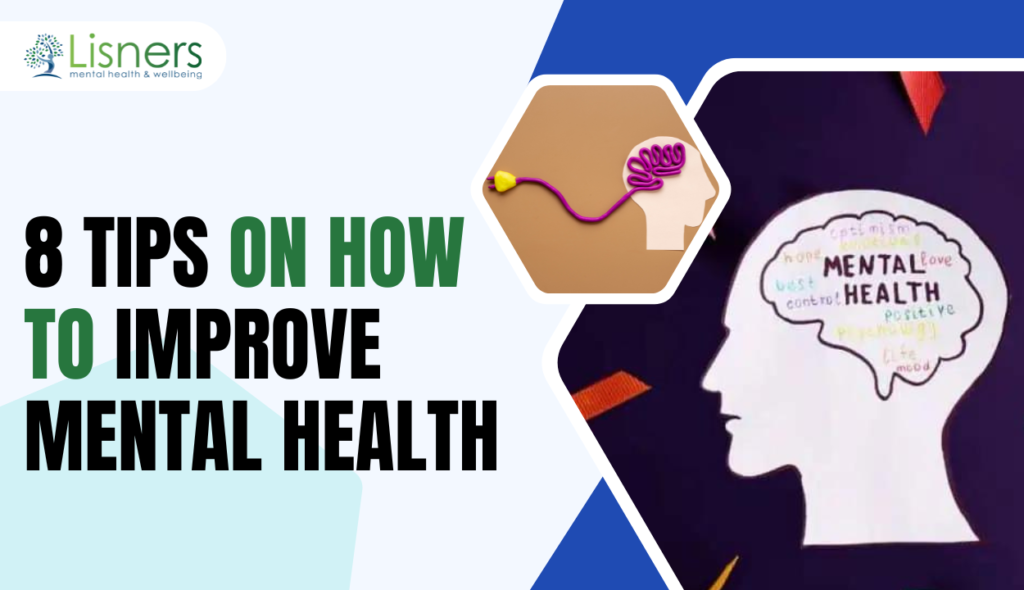Journaling for mental health can be a powerful tool for self-exploration and emotional well-being. By regularly writing down your thoughts and feelings, journaling helps reduce stress, boost mood, and improve clarity. It’s a simple yet effective practice that promotes personal growth and mindfulness, helping you live a healthier and more balanced life. Let us find out how journaling for mental health can help, the science behind it as well as practical tips for you to get started. Lisner Android app offers a great journal feature for free.
What is Journaling?
Journal writing could be seen as keeping a record of one’s thoughts, experiences, and feelings regularly. This can take many forms, ranging from a daily diary to more structured reflective writing. What matters most in this case is consistency and honesty which allows you to process your feelings on paper.
Benefits of Journaling to Improve Mental Health
There are a variety of benefits of journaling. From stress reduction to processing emotions and improved mood, you can become more self-aware and a better problem solver. Let’s delve into each one of them.
- Stress Reduction
By providing an avenue for expressing emotions, journaling helps reduce stress. You can release pent-up emotions about what is bothering you through writing, therefore gaining perspective on your issues. Many people use Journals for anxiety and depression, as it has an immediate impact on the state of mind.
- Processing Emotions
The emotional benefits of journaling for mental health are huge. Writing about feelings enlightens oneself on them; hence, he or she can process them effectively. It allows you to explore your thoughts and feelings without being judged, leading to more emotional clarity and self-awareness. Stress relief through journaling is one of the most prescribed practices by Best Therapist in Delhi. - Improved Self-Awareness
Journaling is one of the best Reflective writing for self-awareness. Regularly writing in one’s diary enhances introspection. A deeper understanding of personal behavior patterns and triggers occurs via reflection upon one’s responses and experiences, thus contributing to growth at the individual level. - Improved Mood
Accordingly, expressive writing raises mood states, promoting well-being generally. For instance, when trying this form of writing, one gets the opportunity to concentrate on positive achievements or occurrences, which creates an optimistic outlook at the end.
- Better Problem-Solving
Keeping a journal helps organize thoughts, which makes it easier to see solutions to problems. It fosters creative thinking, thereby encouraging new perspectives regarding difficult situations too. In case you need something accessible and cost-free, consider using the Lisners Android app.
The Science Behind Journaling and Its Role in Better Health
- Cognitive Behavioral Therapy (CBT)
Cognitive behavioral therapy and journaling are closely related. Journaling is a common tool in CBT, which helps individuals recognize and change negative thinking patterns. By noting down the negative thoughts and replacing them with positive ones, people can heal their mental health.
- Emotional Regulation
It has been found that when you write in your journal, it activates the prefrontal cortex of the brain that regulates emotions. This helps to reduce the control of feelings that are negative and increase emotional regulation.
- Reduced anxiety and depression
Research on expressive writing shows that it reduces symptoms associated with anxiety or depression. Journalism is one way of dealing with disturbing thoughts as well as reducing mental suffering.
- Immune System Benefits
Interestingly, there are physical benefits to keeping a journal too. It has been suggested by some studies that expressive writing may boost immune function because it decreases stress levels.
Challenges of Journaling
- Consistency
One of the most daunting tasks is maintaining an everyday journal habit. The enthusiasm at the beginning makes it easy, while continuous commitment makes the whole thing difficult. Fixing a regular time for every day can help create consistency over time.
- Fear of being judged
Others fear exposing what they have written to anyone else. However, this concern can be reduced by keeping the diary in a safer place where only you can view it.
- Writer’s Block
For instance, not knowing how to begin your next entry could become an obstacle to overcome before you start writing again. Starting with very simple prompts like “Today I feel…” or “Something positive that happened today was…” will get you past this hurdle.
How to start journaling?
We are providing a few journaling tips for beginners so that you can start with it easily.
- Plan for it
Make sure you have allocated time each day to engage in journaling. This could be in the morning to prepare you to face that day or it could be during the night so as to reflect on what happened.
- Locate a suitable place
Choose a quiet and comfortable place that is free from distractions. This makes it possible to think clearly and reflect.
- Be Truthful
Do not lie. In your diary, you can be absolutely honest and say what you really feel.
- Write using Prompts
If you are stuck, start by using prompts. They will give you a good entry point to your writing. Questions such as “What am I grateful for today?” or “What challenges did I face and how did I overcome them?”, may result in meaningful entries.
- Keep it Personal
Make sure that your journal is always kept private. The knowledge that one’s writing is secure promotes truthfulness and vulnerability.
- Don’t Think too Much
Never worry about grammar or spelling. The purpose is self-expression rather than producing well-written work. If you want a safe and private journaling experience, try Lisner’s Android app which has an easy-to-use journal feature free of charge.
Journaling is a simple yet powerful tool for improving mental health. It facilitates emotional wellness as well as personal development because it provides space where emotions can be expressed, experiences reflected on, and insights gained. Yet despite the difficulties, maintaining regularity in the process of keeping a diary often leads to a marked improvement in one’s psychological welfare. Get pen to paper today and begin your journaling journey; your head will appreciate it., The Lisners Android app also offers an alternative where beginners can use its convenient free journaling feature if they decide to write digitally instead of opting for paper diaries.








